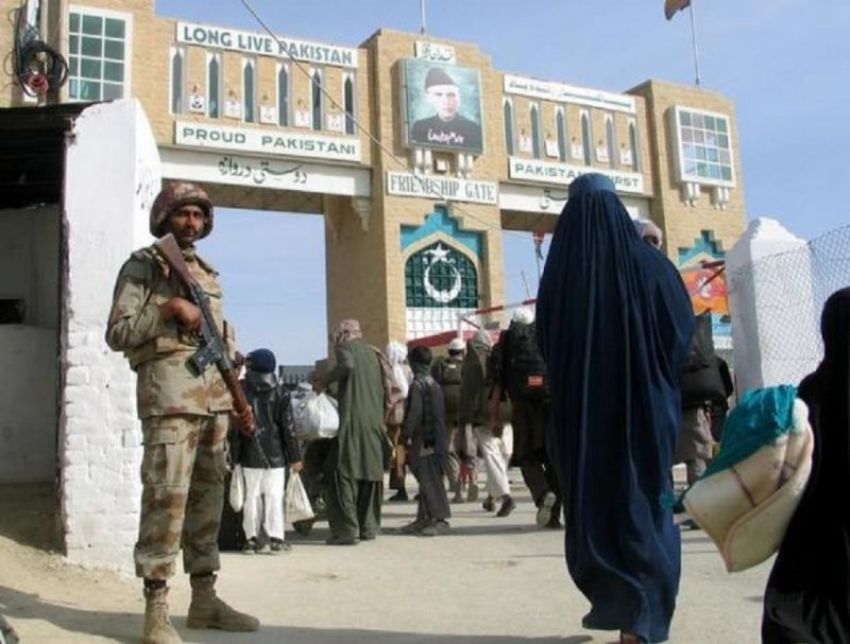2 Christian brothers sentenced to death for blasphemy in Pakistan, charity warns

Two Christian brothers have reportedly been sentenced to death in Pakistan after one of them was accused of posting content deemed disrespectful of Islam on their website.
The United Kingdom-based charity Centre for Legal, Aid, Assistance & Settlement has raised alarm about the sentencing of Qaisar and Amoon Ayub.
The group explained that the death sentences were handed down last Thursday by Judge Javed Iqbal Bosal after a hearing in a Jhelum jail in the Punjab province.
The brothers, who are from the city of Lahore, were arrested in 2014 after the reopening of a police case stemming from a 2011 allegation.
Qaisar had previously explained that he closed down the webpage in question in 2009. However, he claims one of his Muslim friends restored the webpage.
The accusation of blasphemy was made after Qaisar got into an argument with his friends at work. Qaisar then began receiving death threats and went into hiding.
Both Qaisar and Amon eventually fled to Singapore before returning after one month, according to Asia News.
Although they would return, they would soon flee again to Thailand because the situation was still not safe for them. As the brothers spent years on the run, they were told that police were looking for him.
In Pakistan, blasphemy is a crime that is punishable with the death penalty or life in prison.
Qaisar is married with three kids, while Amoon is married to a teacher.
CLAAS plans to appeal Qaiser's death sentence to the Lahore High Court Bench at Rawalpindi, while the American Center for Law & Justice's Pakistan office is handling the appeal for Amoon. CLAAS asserts that in many blasphemy cases, judges are “under threat from religious fanatics” to “convict those accused of blasphemy.”
“This is a very unfortunate situation as because of threats from hardliners lower courts pass their responsibility to the higher court and then it takes years to prove the accused innocent,” CLAAS Director Nasir Saeed said in a statement. “We have seen this in the recent case of Asia Bibi, who was similarly convicted by the lower court and it took her years to reach to the Supreme Court to get justice. I am afraid now Qasir and Amoon will have to wait years to get justice.”
After spending over eight years on death row, Bibi, a Christian mother of five, was acquited by a three-judge panel of the Pakistan Supreme Court in October. Because of that decision, thousands of radical Muslims protested in cities across the country calling for the death of Bibi and the death of the justices who acquitted her. A deal was eventually struck with a hardline Muslim organization for the Supreme Court to review Bibi’s acquittal before allowing her to flee the country.
International human rights activists have long called on Pakistan to reform its blasphemy laws, which are regularly abused by Muslims to settle personal scores with religious minorities. The Pakistani government is facing continued pressure.
Last week, the U.S. State Department designated Pakistan a “country of particular concern” for religious liberty. The CPC designation applies to countries where the government “has engaged in or tolerated systematic, ongoing and egregious violations of religious freedom.”
The CPC designation gives the U.S. government the potential to enact sanctions or diplomatic measures to pressure change in Pakistan and the nine other countries on the list.
Over the summer, the U.S. and 14 other nations signed onto a “statement of concern” that condemned blasphemy and apostasy laws throughout the world as often being used “as a pretext to justify vigilantism or mob violence in the name of religion, or as a false pretense to settle personal grievances.”
“We see governments using such laws to punish individuals whose views on matters of religion or belief may differ from official narratives or the views of majority populations,” the statement reads. “We will work collectively to encourage governments that maintain these laws to free any individuals imprisoned on such grounds, and to work toward the universal repeal of blasphemy, apostasy, and other laws that similarly impede freedoms of expression and religion or belief in a way which is inconsistent with international law.”
U.S. Ambassador-at-Large for International Religious Freedom Sam Brownback told reporters last week that Pakistan is home to about half of the world’s blasphemy law victims.
Last week, BBC interviewed another Pakistani Christian woman who spent about four years in solitary confinement after she was accused of committing blasphemy. The woman said that she was accused by her Muslim neighbors after her child got into a petty fight with one of their children. She was sentenced to life in prison.
She detailed that there were times during her imprisonment when prison guards would deny her food because she is a Christian. Her blasphemy conviction was later overturned.
Although some have been sentenced to death for blasphemy in Pakistan, no one has ever been executed for the crime.
Pakistan railed against the U.S. CPC designation last week, saying that it was “politically motivated.”
Pakistan ranks as the fifth worst country in the world when it comes to Christian persecution, according to Open Doors USA’s 2018 World Watch List.
The Christian Post reached out for further confirmation the on Ayub brothers’ sentencing from the British Pakistani Christian Association, a London-based charity that often helps persecuted Pakistani Christians. A response is pending.
Follow Samuel Smith on Twitter: @IamSamSmith
or Facebook: SamuelSmithCP



























